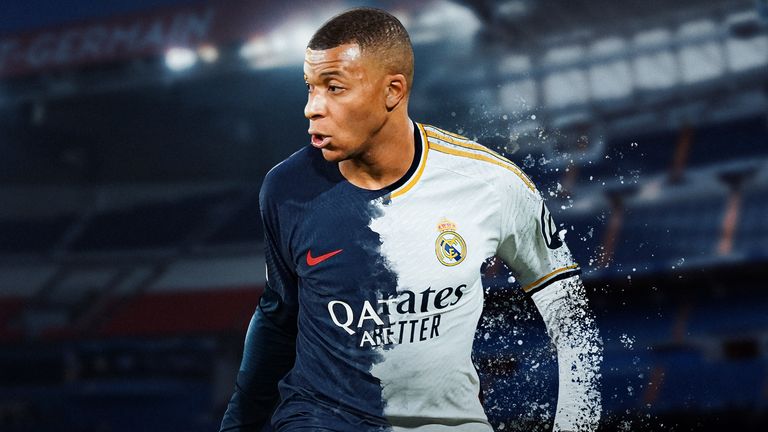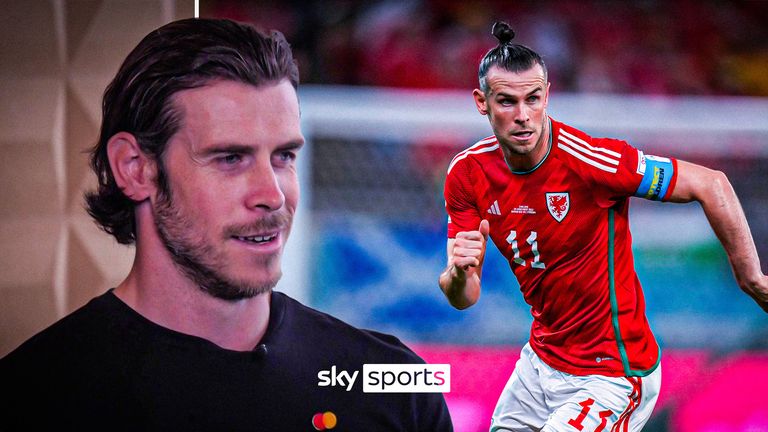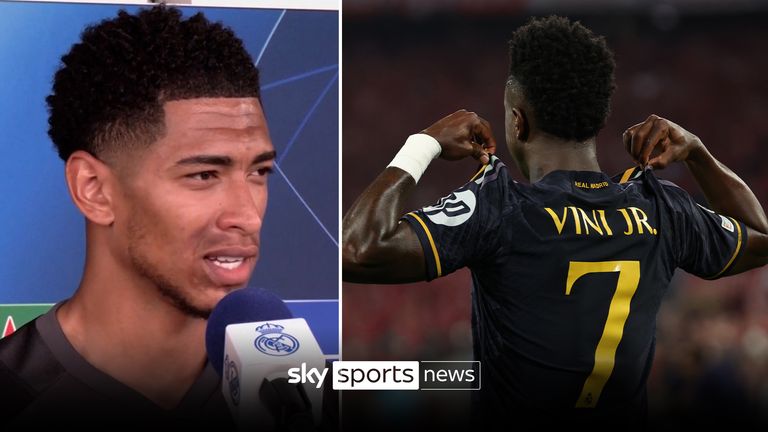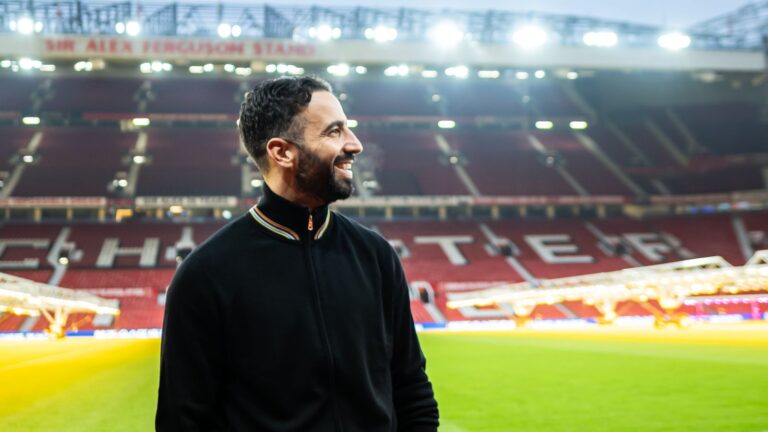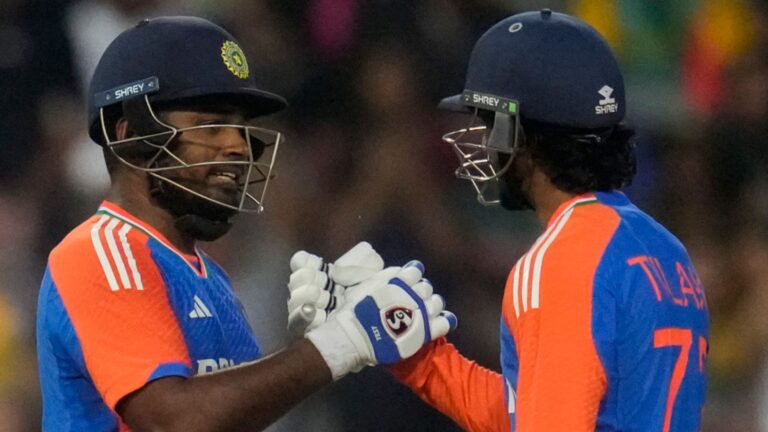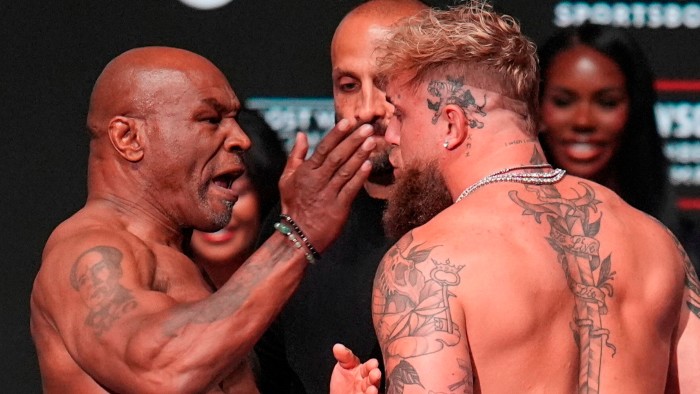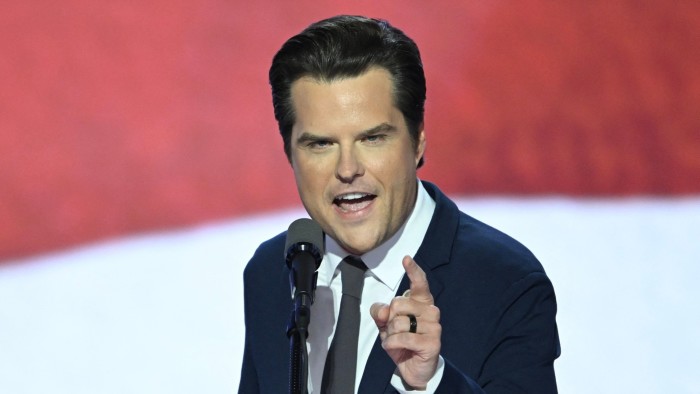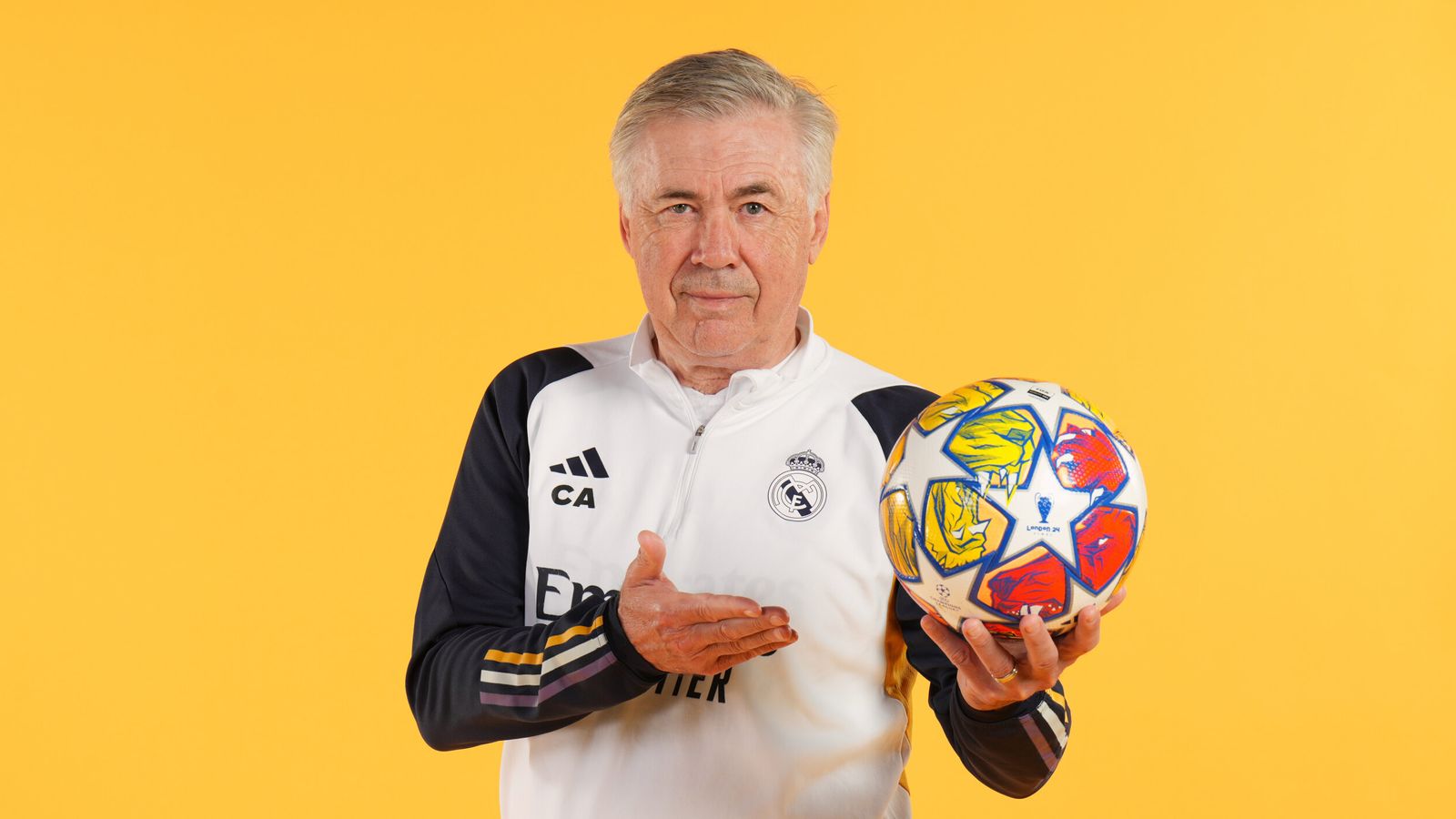
What formation did Real Madrid play when they beat Liverpool in the Champions League final in 2022? Do not expect Carlo Ancelotti to have the answer: “If you asked me how we played the final in Paris, 4-3-3 or 4-4-2, I will tell you I do not know.”
Talk about leaning into his reputation. As Ancelotti prepares his Madrid side for yet another Champions League final against Borussia Dortmund at Wembley, this supposed anti-tactician can cement his status as the world’s most successful football coach.
Ancelotti is the great anomaly. This is the era of philosophers, a coaching world dominated by Pep Guardiola and the heirs to his positional game. From Mikel Arteta and Xabi Alonso to Vincent Kompany and Enzo Maresca, there is a shared thread, an ideology.
But the continued presence of Ancelotti at football’s top table shows that there is another way. It is no underdog story. You may have heard but Real Madrid are rather well resourced. And yet, his side’s patterns of play feel different, looser and less prescribed.
Ancelotti is the only coach in five seasons to eliminate Guardiola from the Champions League over two legs – and he has done it twice. It makes sense to ask the question why. The answer cuts to the heart of the conversation around what makes a coach great.
Any attempt to explain this success usually begins and ends with his man-management skills. Speaking about this to Kaka, who won the Ballon d’Or under Ancelotti at Milan, he saw it as his key quality. “Carlo was the best one for me,” he told Sky Sports.
“The most impressive characteristic that he has got, in my opinion, is his ability to manage people. Man-management is so important. Of course, he is really good with tactics and he understands the game and everything, but it was how he managed the players.”
His origin story as a super-coach is well known. Offered the services of Roberto Baggio as a young coach at Parma, he rejected the chance because Baggio could not be accommodated in the 4-4-2 system that had been sacrosanct to him as a follower of Arrigo Sacchi.
Lesson learned, Ancelotti became the ultimate players’ manager, indulging talent ever since and reaping the rewards that it brings. Once asked if he had ever had a problem with Cristiano Ronaldo, he replied: “In fact, he solved the problems for me.”
Ronaldo scored as Ancelotti won Europe’s premier club competition for a record-equalling third time in 2014. He has since become the only coach to win it four times as well as becoming the first to win the title in all five major European leagues.
There is a lingering suspicion that Ancelotti’s success is a source of discomfort for the tactically obsessed, the sense that his work can be dismissed as uninteresting. An arm around the shoulder and a raise of the eyebrow, nothing else to see here.
Last summer, when Sky Sports asked an eclectic mix of coaches for their thoughts on the most tactically innovative of their peers, those whose ideas will shape the future of football, Guardiola and Roberto De Zerbi were to the fore. Ancelotti was not mentioned.
The thought occurs that they are missing a trick if they are thinking that his every triumph can be explained away as the work of others. Freedom, identified by Jude Bellingham as the main reason for his brilliant debut season in a Madrid shirt, is a tactic too.
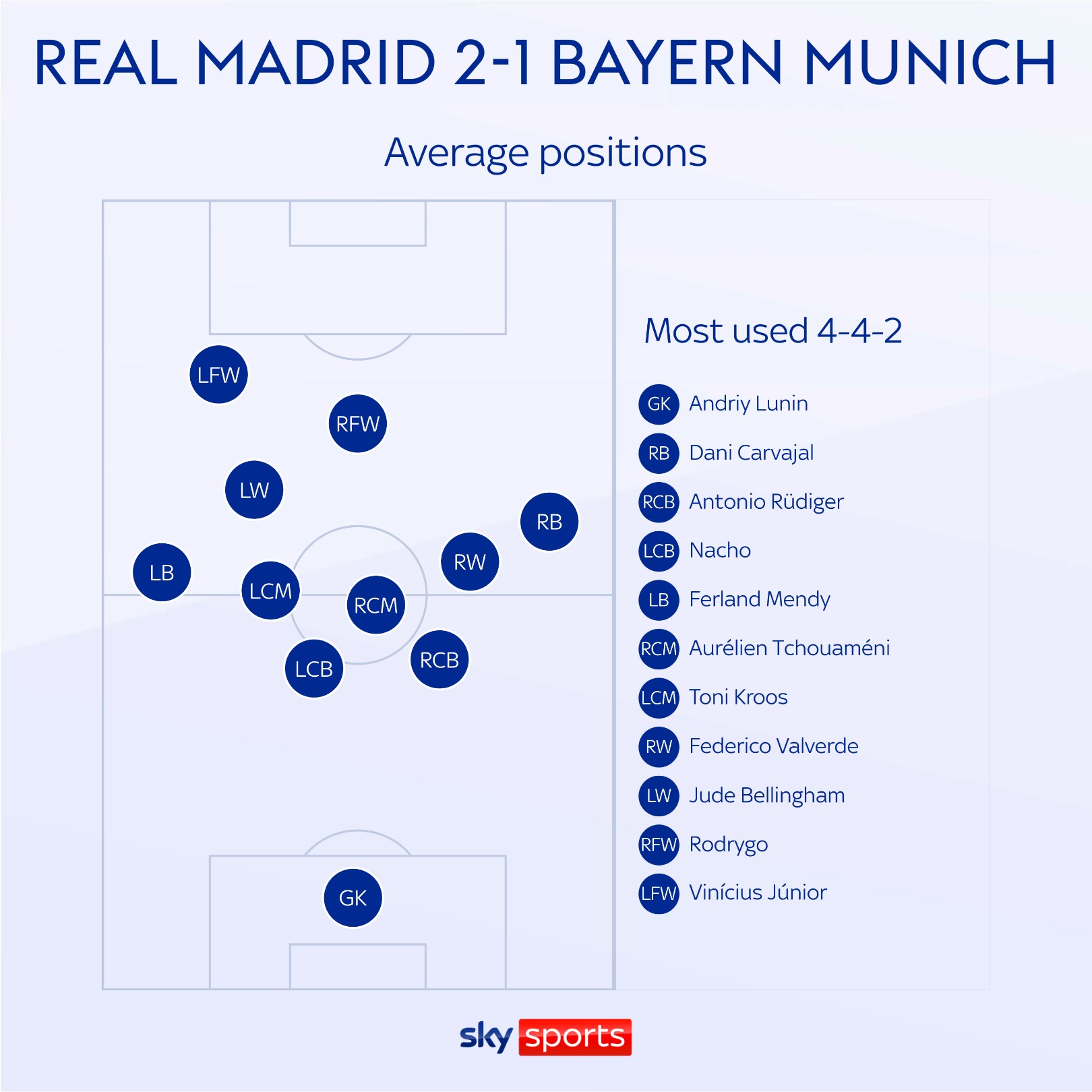
Consider the average positions as shown on this passing network from the second leg of Real Madrid’s semi-final win over Bayern Munich. Rodrygo was supposedly the right winger but frequently created overloads by joining Vinicius Junior on the left flank.
Guardiola would be horrified. He once set out cones on the training pitch to make it clear to his wide players that they must not venture beyond that zone. But that freedom is an essential component of an Ancelotti side. Indeed, that is why the magic happens.
He has explained his thinking on this clearly. “If Vinicius or Rodrygo feel more comfortable opening up a little more on the wings when the team has the ball, I am not going to tell them to stay inside, because it is an individual interpretation of the game.”
Ancelotti wants to unlock that creativity in his world-class players, encouraging the sort of spontaneity that can set them apart. Perhaps intuitively, he recognises that human beings are capable of finding solutions that a more regimented approach might miss.
This is not the absence of tactics. This is the tactic.
Do not stifle talent. It is not there to be harnessed but unleashed.
Without the ball, Madrid are still disciplined. The principles of being compact remain. Those are non-negotiable and were evident in the way that they successfully restricted City in the quarter-final. But once in possession, that is when the players can play.
“I do not do it because I do not want to take away everyone’s creativity,” says Ancelotti. “The mistake that the new generation of coaches make is giving too much information to the players in the game with the ball. This takes away creativity.
“It is one thing to indicate to the player the positioning without the ball, there you have to give a lot of information, because without the ball it is concentration, sacrifice and collective play. But with the ball, it depends on the creativity of the player.”
It might seem perverse to style Ancelotti as a counter-cultural figure. This is the manager of Real Madrid, football royalty as player and coach. And yet, given Guardiola’s status, the accepted wisdom, this orthodoxy, his ideas now seem dangerous in comparison.
It brings to mind a conversation with Henrik Rydstrom earlier this year in which he outlined his approach at Malmo that has led him to be described as Europe’s most innovative coach because of his own rejection of positional play in favour of something more fluid.
“Sometimes coaches want to feel like God and I think that is why positional play is so popular. Of course, it is a really good way of playing. As a coach, you get to feel like you have all the answers. Here, I do not have the answers in every situation.
“The players find the solutions. That has been the biggest challenge for me and for them but I can see how it has unlocked some nice things. I certainly believe that the ceiling is really high with this kind of football because you do not limit them so much.”
As ever, Ancelotti’s summary is more succinct.
“If a team does not have a clear identity, it is not a limit,” he says.
“It is a quality.”
Maybe that brings us back to man-management. There are those who wonder why it is that Real Madrid so often come up with a seemingly unlikely winner late in the game. Some say it is the history of the shirt. But there are psychological benefits to this style of play.
Staying in your lane and trusting in the system offers more certainty to players. Do the job and the goal will come. But being trusted to make things happen, encouraged to be the difference, roaming in search of the solutions, that can be truly empowering.
It could take Real Madrid to glory again.
Just do not expect anyone to credit Ancelotti’s tactics if it does.
